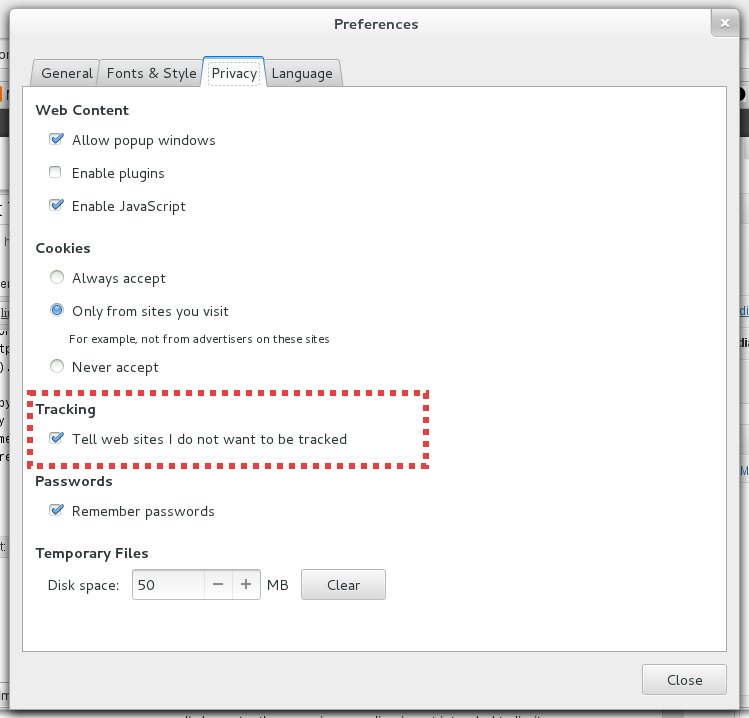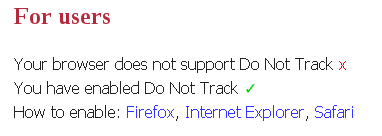Twitter’s last Privacy Policy Update helpfully informs all users that they do now support the Do Not Track (DNT) browser setting, which aims to stop the collection of information at the user’s request (a collection which Twitter is actively engaged into).
Spurred by all this I sat down and added DNT support in Epiphany, which thankfully is an extremely simple spec to implement. It’s now in master, so anyone willing to enable just needs to go to the Privacy tab in Preferences and click:
Now the pages that choose to respect this setting (unfortunately not everyone does; by a long shot), should be able to detect your request. We can see that things are working in the donottrack.us page itself.
Note that the page claims our browser does not support the feature, yet it is enabled; this is because DNT being an HTTP header extension the only way for the page to tell you whether your browser supports it in theory is by having a hardcoded list of supported browsers, which does not include Epiphany. Oh well. Either way, enjoy your newly untraceable goodness, which should make its way into the next unstable release.



Pingback: Maemo developers: Do Not Track support in Epiphany | Linux-Support.com
Will this do-not-treak feature be enabled by default in Epiphany? I sure hope so!
I wonder why this is being done on application level and not as a setting for GNOME OS so every application can reuse the setting. Just one tick in Control Panel somewhere and be done?
Hans:
what other applications do you have in mind that could re-use this setting?
Hib:
it’s not enabled by default right now, since at usual I think it’s safer to err on the side of caution with new features that might interfere with web content. Firefox also does not enable DNT by default.
That being said, the feature is visibly exposed in the UI, so I think those interested won’t have many troubles enabling it. At some point in the future it might make sense to change the default to enabled, and I’ll be happy to do so.
Xan:
I think of Liferea and Evolution for example. Basically everything that includes GtkHTML, Webkit or Gecko and goes to the Internet to retrieve pages are parts of pages. The border between browsers and other applications is disappearing so it would make sense for me to make it a general setting.
The wording is rather clumsy. Who is “I”? The user? The browser? It’s always best to avoid using “I” or “me” in UI messages.
Pingback: We are almost there: Web in 3.6.0 « Iocane powder